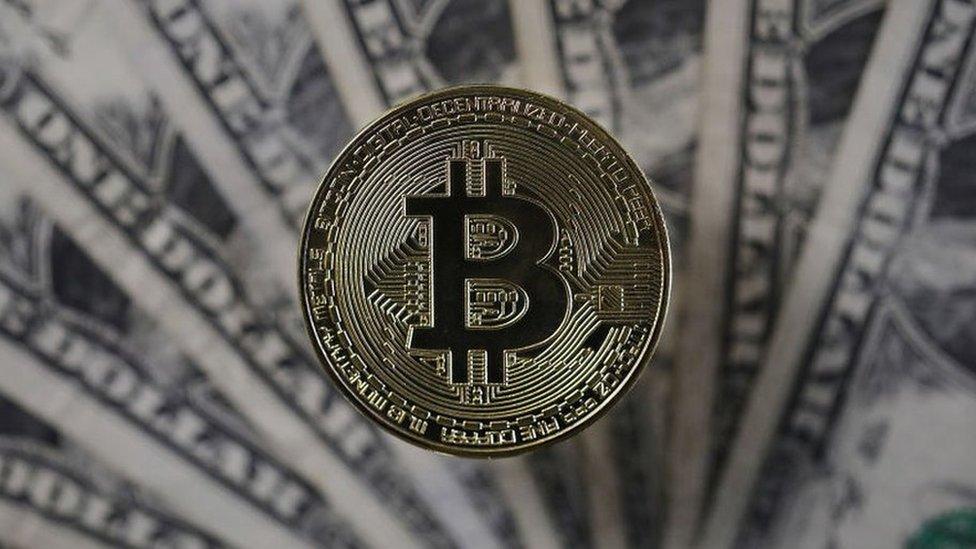Carney calls for crackdown on crypto-currency 'mania'
- Published
- comments
Carney calls for crypto-currency regulation
Crypto-currencies such as Bitcoin should be regulated to crack down on illegal activities and protect the financial system, Mark Carney warned.
The Bank of England governor said their inherent risks meant investments in digital currencies could lose money.
"The time has come to hold the crypto-asset ecosystem to the same standards as the rest of the financial system," Mr Carney said in a speech, external on Friday.
Crypto-currencies do not yet pose risks to financial stability, he said.
But he said that could change if more people began investing in them.
Although some countries have banned them, Mr Carney said regulation would be a better approach.
"A better path would be to regulate elements of the crypto-asset ecosystem to combat illicit activities, promote market integrity, and protect the safety and soundness of the financial system," he said.


Analysis: Simon Jack, BBC business editor
If the world of crypto-currencies such as Bitcoin are the Wild West, a new sheriff just swaggered into town.
Bank of England governor Mark Carney laid down the law today with a withering assessment of Bitcoin's qualifications to be described as money and a warning that, if allowed to grow unchecked, it could threaten financial stability.
Sheriff Carney says it fails as money because it is wildly volatile, poorly understood, inefficient and not widely accepted.
Digital currencies threaten stability because people may invest substantial amounts - mistakenly believing they are regulated - causing further loss of faith in the financial system if they collapse.
The evangelists of crypto-currencies will dismiss Mr Carney's assessment as the predictable response of a financial establishment that Bitcoin threatens.
If Governor Carney has his way, they will be saying: I fought the law and the law won.

'Down with the kids'
China has cracked down hard on crypto-currencies, banning initial coin offerings and shutting down Bitcoin exchanges.
Indonesia and Bangladesh have banned Bitcoin as a payment tool, and India's central bank has issued a number of warnings about Bitcoin risks.
However, Mr Carney said that the technology on which crypto-currencies are based "could potentially catalyse innovations to serve the public better".
Blockchain technology could be used to make payments more flexible, efficient and reliable.
"They point the way to where the system has to go" by allowing peer-to-peer transactions, he said.
He said the Bank "has an open mind" about the eventual development of a central bank digital currency, but he said it "shouldn't be a solution in search of a problem or an effort of central bankers to be down with the kids".
Digital currencies can allow anonymous transactions and carry risks including money laundering, terrorism financing and tax evasion.
But in terms of regulation, "if there's a will there's a way", Mr Carney said. "It's relatively straightforward."
Crypto-currency trade body Crypto UK said it supported new regulation, but said that policymakers should not try to adapt existing financial rules to digital currencies.
"This shouldn't be viewed as a crackdown, but an opportunity to establish parameters that protect consumers while encouraging the biggest and best crypto-currency businesses to make the UK their home," a spokesperson said.
- Published22 February 2018

- Published1 March 2018
